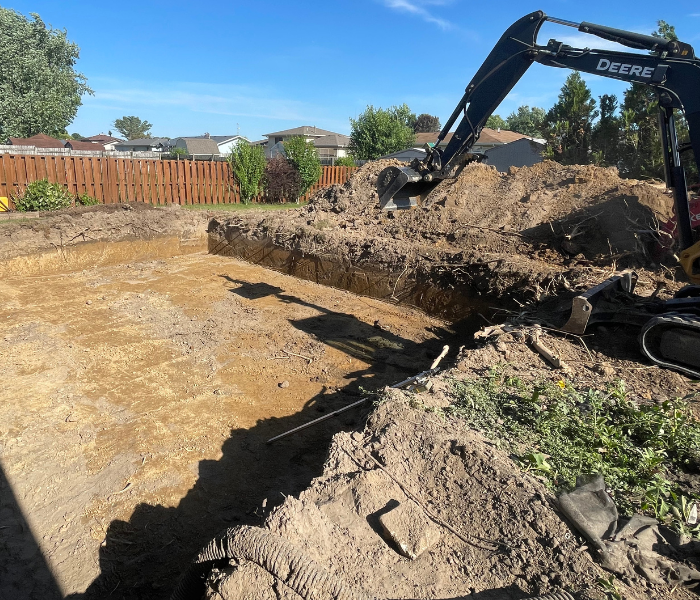Comprehensive Excavation Strategies: Mastering the Fundamentals for Success
The careful preparation, specific implementation, and meticulous focus to information called for in excavation tasks require a detailed technique that includes different fundamental aspects. The real proficiency exists not just in recognizing these principles yet in seamlessly incorporating them to navigate the intricacies of excavation jobs with finesse.
Understanding Excavation Task Preparation

Successful excavation projects are developed on the foundation of thorough and careful preparation. The initial phase of any type of excavation project is the preparation stage, where critical choices are made that can substantially affect the outcome of the project. Throughout this phase, it is important to gather all pertinent information concerning the site, consisting of topographical studies, soil structure, and any prospective threats that may exist. Understanding the job timeline, budget plan, and extent constraints is important for developing a thorough excavation strategy that makes sure the project's success.
One secret facet of excavation job planning is the growth of an in-depth timeline that outlines the series of due dates, activities, and milestones. By thoroughly taking into consideration all these factors during the planning stage, excavation jobs can be carried out successfully and efficiently, leading to successful results - excavating ohio.
Soil Analysis and Website Assessment
Performing thorough dirt evaluation and website examination is an important step in the preparation phase of any kind of excavation task. Dirt evaluation involves establishing the make-up, framework, and homes of the dirt at the excavation site. This information is crucial for comprehending the soil's bearing capacity, moisture web content, and capacity for erosion, which are key factors in establishing the excavation approaches and tools required for the job.
Site analysis surpasses soil evaluation and encompasses a broader assessment of the overall site problems. This examination consists of determining any possible threats, such as below ground energies, ecological issues, or unsteady surface, that could impact the excavation procedure. By thoroughly evaluating the website, task managers can create reliable excavation strategies that prioritize safety and security, effectiveness, and environmental management.
Utilizing advanced technologies like ground-penetrating radar, dirt sampling, and drone studies can improve the accuracy and performance of soil analysis and site examination. Spending time and sources in these preliminary actions can eventually save time and stop expensive delays or difficulties during the excavation procedure.
Equipment Choice and Use
Effective excavation jobs depend heavily on calculated devices selection and usage to guarantee optimal performance and performance. Selecting the right tools for the job is crucial in taking full advantage of efficiency and reducing downtime. Elements such as the kind of soil, depth of excavation, and task extent play a significant duty in establishing one of the most ideal tools for the job available.

In addition to choosing the appropriate devices, dig this correct usage is crucial to task success. Operators has to be trained to deal with the devices securely and effectively - excavating ohio. Normal upkeep checks and prompt repair work help avoid breakdowns and make sure consistent efficiency throughout the project
Precaution and Laws Compliance
In the realm of excavation projects, focusing on security steps and compliance over at this website with regulations is vital to making certain a legitimately sound and secure operational atmosphere. Safety and security steps encompass a series of methods, including conducting detailed site evaluations, implementing appropriate signage and obstacles, and giving adequate security training for all employees involved in the excavation procedure. Adherence to guidelines, such as OSHA demands in the USA, ensures that the excavation job satisfies the needed requirements to shield employees, onlookers, and the surrounding setting.

Surveillance Development and Adjusting Techniques
Exactly how can project supervisors effectively track the development of excavation jobs and adjust their techniques appropriately to maximize end results? Tracking development is necessary for guaranteeing that excavation projects stay on track and meet due dates.

Final Thought
To conclude, understanding the basics of detailed excavation approaches is crucial for the success of any kind of task. By comprehending project planning, assessing dirt and website conditions, selecting appropriate tools, following safety and security guidelines, and monitoring progression, project supervisors can make sure a smooth and efficient excavation process. Carrying out these approaches will lead to effective outcomes and reduce possible dangers or troubles throughout the excavation job.
The preliminary stage of any kind of excavation project is the planning phase, where important decisions are made that can significantly affect the end result of the task. Recognizing the job range, timeline, and spending plan restraints is crucial for creating an extensive excavation plan that makes sure the project's success.
Exactly how can project managers properly track the innovation of excavation jobs and adjust their methods appropriately to enhance results? By very closely checking development and being prepared to adapt strategies, project managers can boost the total success of excavation tasks.
By recognizing project preparation, examining soil and website conditions, picking ideal tools, complying with security guidelines, and monitoring development, job supervisors can make certain a smooth and reliable excavation process.